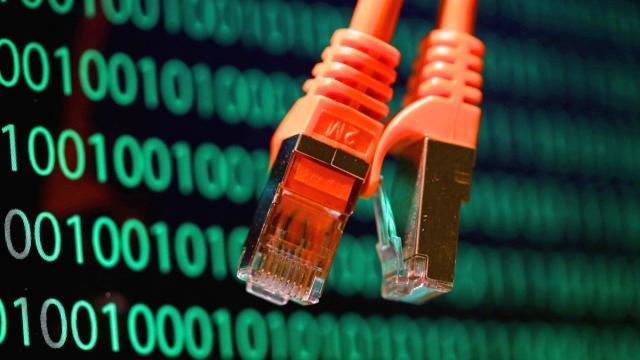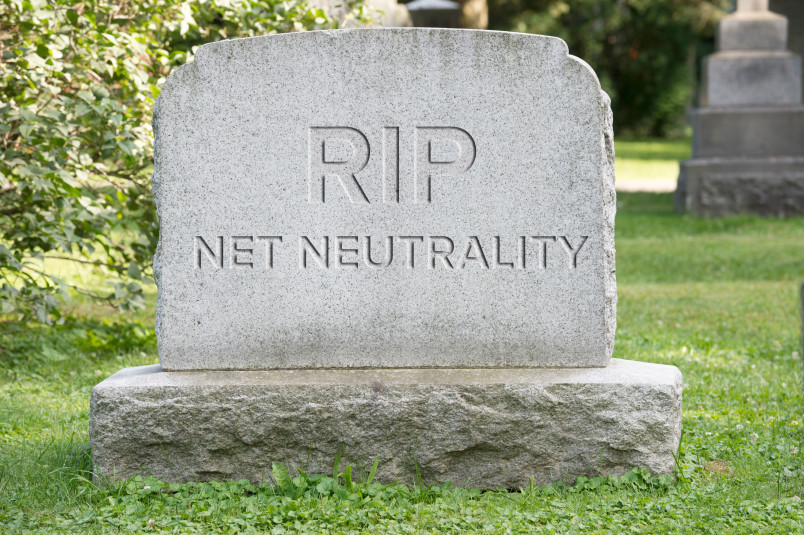
In the victory for net neutrality earlier this year, the Federal Communications Commission ruled that Internet service providers are “common carriers,” meaning they fall under the jurisdiction of the Communications Act of 1934 and the Telecommunications Act of 1996. Most activists assumed this decision finally brought the net neutrality debate to an end. The thing is, the major telecom companies – AT&T, Verizon and Turner Cable, among others – have re-doubled their efforts to contest the issue in U.S. Congress and the courts. In other words, the debate is nowhere near over.
In addition to a current lawsuit on net neutrality being handled by a federal appeals court in Washington, six more cases are currently moving through the courts as multiple bills wind their way through Congress, all of them seeking to weaken if not undo the FCC ruling. The current case began oral arguments on Friday, December 4.
The issue of net neutrality began to rouse mainstream America in late 2014, and the FCC’s website was flooded with almost 4 million comments when it gave citizens a chance to weigh in. What made it such an unusual fight was that it pitted free speech advocates and some of the biggest tech companies on the one side, and telecoms – with their many political allies who benefit from the fortunes these companies spend on lobbying – on the other.
As John Oliver demonstrated in a typically witty segment of “Last Week Tonight,” far from being competitive, the big telecoms act more like regional monopolies. In a video clip he played, Comcast's CEO talked about how a merger of the two companies would not “reduce competition."
“Both in video and in broadband we don’t compete with Time Warner...they’re in New York, we’re in Philadelphia. They’re in L.A., we’re in San Francisco,” the CEO told a reporter.
But it's a legitimate concern, among millions, that given the opportunity, Comcast and their competitor corporations will create a two-tiered Internet where better access will be provided to those who are willing and able to pay for it. Considering that most of these companies are also major content providers, it’s safe to assume that privileged access will be given to their own products at the expense of smaller content producers. The end of net neutrality could be the death knell of the vibrant alternative media that has grown online, and lead to assaults on more prosaic, and popular, services like Hulu.
One the most widely circulated recent articles in the mainstream press covering net neutrality was a piece in the Washington Post that discussed the records of the three judges who are presiding over the case, and revealing some vague details on where they may stand. Of the three, one was appointed by Ronald Reagan, another by Bill Clinton and the third by President Obama.
Judge David S. Tatel, the Clinton appointee, has the most experience dealing with FCC-related issues; his previous position, in fact, might be cause for alarm since “he wrote the legal opinion that led to this current case,” according to the Post. Tatel and two other judges decided that the FCC had over-stepped its authority in imposing net neutrality on the service providers in 2014.
Net neutrality isn’t just an American issue. In Europe, activists complained that new E.U. regulations passed in October offered exceptions that might allow providers to get around the previous rules protecting it. One rule allows them to prioritize services “like remote surgery, driverless cars and preventing terrorist attacks.” Though the rule might seem reasonable on the surface, critics including the Italian government have warned the rule could be used to create a “fast lane” for paying sites.
Another threat to net neutrality is more global in nature, and comes in the form of the web service Internet.org, created by Facebook founder Mark Zuckerberg, which claims the noble mission of bringing access to millions of poor people at reduced cost. The problem is that this service is limited to sites approved by the company, opening up the possibility of a two-tiered system in the global South.
Early content providers to Internet.org include Facebook and BBC News. The service is already spreading across Africa, but a small group of activists in Brazil staged protests against it at the Internet Governance Forum (IGF) in mid-November. The protesters were quickly removed by security staff, but an open letter circulated by 67 digital rights groups helped spread their message that Facebook is “building a walled garden in which the world’s poorest people will only be able to access a limited set of insecure websites and services.”
In a world already awash in corporate media, the Internet has become a vital resource for those seeking to escape the talking points of the right and far right. The net neutrality debate has enlisted many allies, and it’s only through vigilance and general consensus that the Internet will continue to be equal for all. It's altogether possible that the current cases and lawsuit challenging net neutrality represent the most important free speech battle of the century.
3 WAYS TO SHOW YOUR SUPPORT
- Log in to post comments

















